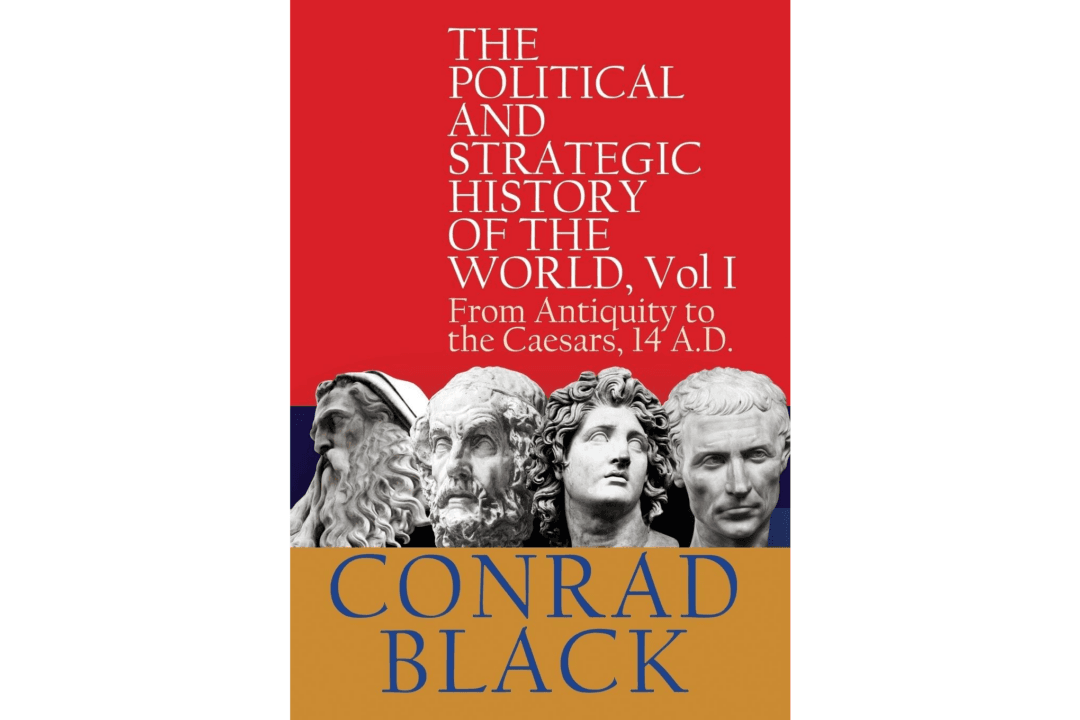Political commentator, media mogul, and historian Conrad Black is neck-deep in an extensive and exhaustive project: telling the history of the world. He tells the story of history through a political and military strategic lens. In his recent first volume of this massive undertaking, titled “The Political and Strategic History of the World,” Black reached all the way back to antiquity, from the earliest pharaohs and the emergence of Moses to A.D. 14 with the reign and death of Caesar Augustus.
A task is indeed set before the reader with the book having more than 1,000 pages, and considering the book’s rather fine print, in comparison to any typical book, several hundred more pages might be added on. But that task is daunting only if one plans to read the book cover to cover. Of course, one could, but for this type of work, it isn’t necessary.






